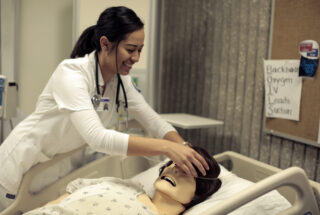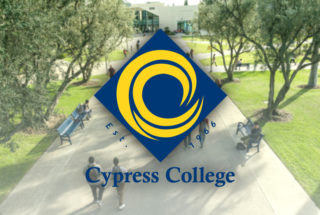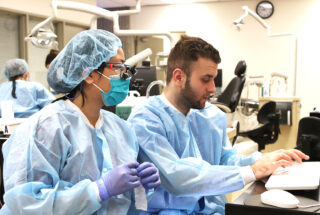Radiologic Technology Application Dates and Health Science Application Login
Radiologic Technology Program Application Information
Radiologic Technology Application Checklist
Radiologic Technology Workshop Dates
Build Your Future as a Radiologic Technologist
The Cypress College Department of Radiologic Technology provides a high-quality education that fosters equity and prepares a diverse population of students with the entry-level skills needed to become competent, confident, and fully licensed radiographers.
The program is accredited by the Joint Review Committee on Education in Radiologic Technology (JRCERT). The JRCERT is the only agency recognized by the United States Department of Education and the Council on Higher Education Accreditation for the accreditation of traditional and distance delivery educational programs in radiography, radiation therapy, magnetic resonance, and medical dosimetry. The JRCERT awards accreditation to programs demonstrating substantial compliance with the Standards for an Accredited Educational Program in Radiography.
The program qualifies graduates to take the American Registry of Radiologic Technologists (ARRT) certification exam and prepares them for employment in the field of radiologic technology. Upon passing the ARRT exam and obtaining ARRT credentials, graduates become eligible to apply for both the Certified Radiologic Technologist (CRT) and Fluoroscopic Radiologic Technologist (FRT) certificates through the California Department of Public Health’s Radiologic Health Branch (RHB). The RHB will review the submitted application and supporting documentation, and upon approval, the applicant will be issued both the CRT and FRT certificates.
The Cypress College Radiologic Technology program has been granted an 5-year accreditation by the JRCERT through 2026. Review the JRCERT accreditation letter here.
JRCERT
20 N. Wacker Drive, Suite 2850
Chicago, IL 60606-3182
(312) 704-5300
mail@jrcert.org
http://www.jrcert.org/
Upon completion of the program, students will be able to:
- Apply positioning skills in all required radiographic examinations.
- Select appropriate technical factors for radiographic examinations.
- Practice radiation protection for all radiographic examinations.
- Employ proper patient care techniques.
- Demonstrate oral and written communication skills.
- Relate to and anticipate the needs of the doctors and technologists.
- Adjust to changes, situations, patient conditions, and deviation from the normal routine.
- Demonstrate knowledge of ethical requirements for an entry-level radiographer along with ethical practices in a healthcare setting.
- Understand their professional obligations upon gaining their ARRT status.
View the program schedule by clicking the workshop handout link above.
Program Effectiveness Data
The following is the most current program effectiveness data. Our programmatic accreditation agency, the Joint Review Committee on Education in Radiologic Technology (JRCERT), defines and publishes this information. Click here to go directly to the JRCERT webpage.
Credentialing Examination: The number of students who pass, on the first attempt, the American Registry of Radiologic Technologists (ARRT) certification examination, or an unrestricted state licensing examination, compared with the number of graduates who take the examination within six months of graduation. The five-year average benchmark established by the JRCERT is 75%.
Credentialing Examination Rate
Number passed on 1st attempt divided by number attempted within 6 months of graduation
YEAR, RESULTS
Year 1 – 2025, 33 of 36 – 92%
Year 2 – 2024, 29 of 32 – 91%
Year 3 – 2023, 26 of 30 – 87%
Year 4 – 2022, 31 of 32 – 97%
Year 5 – 2021, 34 of 34 – 100%
Program 5-year Average of 153 of 164 – 93%
Job Placement: The number of graduates employed in the radiologic sciences compared to the number of graduates actively seeking employment in the radiologic sciences within 12 months of graduating. The five-year average benchmark established by the JRCERT is 75%.
Job Placement Rate
Number employed divided by number actively seeking employment within 12 months of graduation
YEAR, RESULTS
Year 1 – 2024, 32 of 32 – 100%
Year 2 – 2023, 30 of 30 – 100%
Year 3 – 2022, 32 of 32 – 100%
Year 4 – 2021, 34 of 34 – 100%
Year 5 – 2020, 34 of 34 – 100%
Program 5-year Average 162 of 162 – 100%
Program Completion: The number of students who complete the program within the stated program length. The annual benchmark established by the program is 80%.
Program Completion Rate
Number graduated divided by number started the program
YEAR, RESULTS
Year – 2025, 37 of 39
Annual Completion Rate 95%
Frequently Asked Questions
The program options include an associate degree program with a certificate option. If a student comes into the program with an associate degree or higher, the student may apply for the certificate only.
Once accepted to the program, it takes 21 months. Information workshops are available for students who are interested in getting started in the Radiologic Technology program. These workshops are given by a Health Science counselor who will present information and answer questions. The Health Science Workshop Schedule and Reservations link is located here.
For an in-depth fee overview, please visit the workshop handout link at the top of this page. The unit cost for the associate degree will vary depending upon the number of prerequisites needed. Most students also qualify for some form of financial aid.
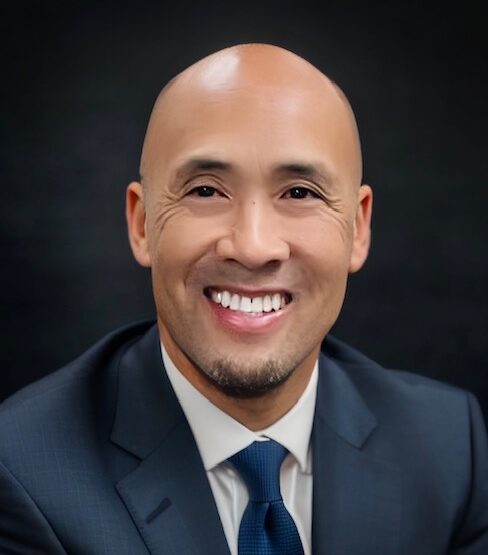
Dr. Michael Frianeza is a professor and the director of the Radiologic Technology program at Cypress College. With more than 30 years of experience in the medical imaging industry, he has specialized in cardiac catheterization, interventional radiology, and computed tomography. Dr. Frianeza teaches an array of courses in radiology, including radiographic anatomy and physiology, radiologic procedures, patient care, radiobiology and health physics, and venipuncture and pharmacology. He also has an extensive background in healthcare management and has collaborated with several consulting firms to establish cardiovascular intervention labs throughout Southern California. A proud alumnus of Cypress College, Dr. Frianeza graduated from its Radiologic Technology program in 1993. He holds undergraduate degrees in radiologic science and technology, along with graduate and doctoral degrees in healthcare education, leadership, and administration. Dr. Frianeza is licensed by the California Department of Public Health – Radiologic Health Branch and the American Registry of Radiologic Technologists.
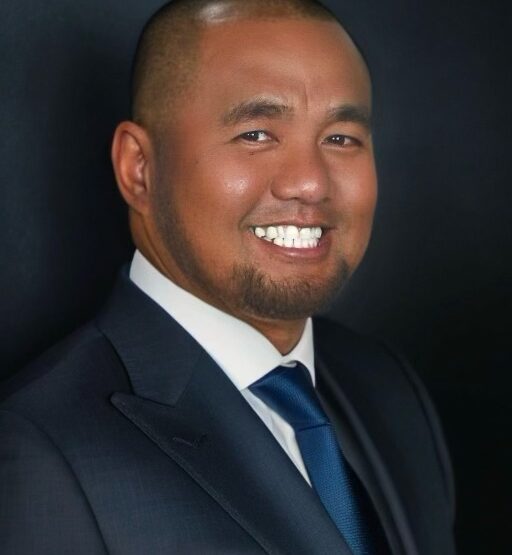
Dr. Raymond Ranada serves as a professor and clinical coordinator for the Radiologic Technology program at Cypress College. With more than 20 years of experience in the medical imaging industry, he brings a wealth of knowledge and expertise to his role. Dr. Ranada graduated from Long Beach City College's Diagnostic Medical Imaging program in 2006. He later earned a master’s degree in Radiologic and Imaging Sciences from California State University, Dominguez Hills, and a doctoral degree in Healthcare Education and Leadership from Nebraska Methodist College. As a technologist, Dr. Ranada specialized in cardiac- and neuro-interventional imaging, special procedures, and diagnostic radiography. He is a licensed professional through the California Department of Public Health – Radiologic Health Branch and the American Registry of Radiologic Technologists.
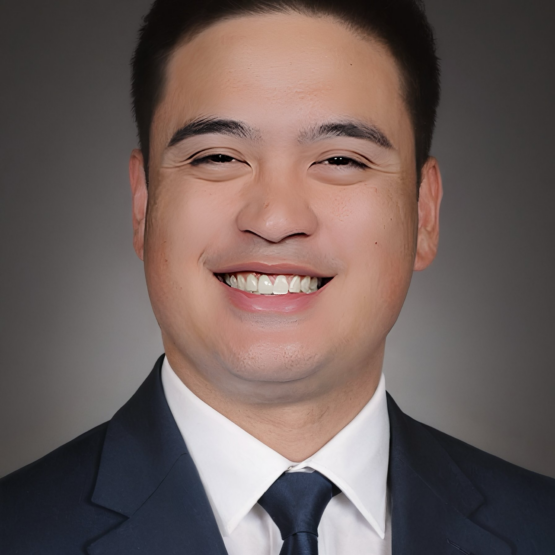
Dr. Ryan Gregory Garcia serves as an instructor in the Radiologic Technology program at Cypress College. Passionate about radiology, he is committed to continuous learning and professional growth. He graduated from the Radiologic Technology program at Charles R. Drew University of Medicine and Science and later earned a master’s degree in Radiologic and Imaging Sciences from California State University, Dominguez Hills. He completed his doctoral degree in Health Science with an emphasis in education at the University of the Pacific.
Program Mapper: View course options for this program, below.
- Radiologic Technology Associate in Science Degree = 94.5 units
(2 years’ time without general education and prerequisites; units without prerequisites but with general education) - Radiologic Technology Certificate = 51.5 units
(2 years’ time without general education and prerequisites; units without prerequisites but with general education) - Imaging Technologist Assistant Certificate= 17 units (1-2 semesters)
This program requires prerequisites and an application. Read more about the program in the brochure at the link on the top of this page.
Prerequisites include the following classes:
- Survey of Medical Terminology
- Anatomy and Physiology or Anatomy
- Radiologic Electronics
- Introduction to Radiography
- Intermediate Algebra (or higher)
Please consider attending an information workshop about Cypress College Health Science Programs. The Health Science Workshop Schedule and Reservations flyer is here.
Clinical obligations: Relevant requirements for completion of the clinical component including, but not limited to, background checks, drug screening, travel to geographically dispersed clinical settings, evening and/or weekend clinical assignments, and documentation of professional liability may be required.

